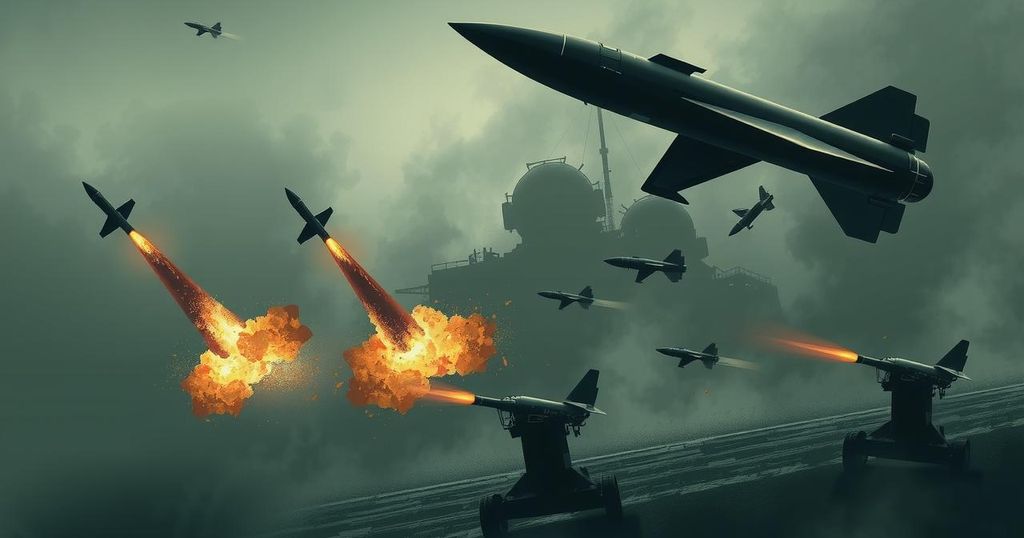World news
ASIA, BLOOMBERG, BUDANOV, DEFENSE, DONALD TRUMP, DONETSK, ENERGY INFRASTRUCTURE, EUROPE, EUROPE/ASIA, KI, KIM JONG - UN, KIRILL BUDANOV, KOREA, NORTH, MILITARY, MILITARY SUPPORT, NATIONS, PUTIN, PYONGYANG, RUSSIA, RUSSIA-UKRAINE WAR, SERGEI LAVROV, SERGEI SHOIGU, TRUMP, UKRAINE, UNITED, US, VLADIMIR PUTIN, WAR
Lena Nguyen
0 Comments
Ukraine Questions North Korean Weapons Supply to Russia
- Ukraine’s military intelligence reveals North Korea supplies artillery to Russia.
- Up to 60 percent of Ukrainian losses attributed to North Korean missiles.
- Ties between Russia and North Korea deepened after Putin’s visit in June.
- Thousands of North Korean troops reportedly assisting Russian forces.
- Recent Russian advances in the northeast signal ongoing conflict intensity.
Ukraine’s military intelligence reveals alarming North Korea supply chain.
In a striking update from the ongoing conflict in Ukraine, Kirill Budanov, the head of Ukraine’s military intelligence service, has made some alarming revelations. He stated that as much as 40 percent of the artillery ammunition being used by Russian forces in Ukraine is sourced from North Korea. This supply includes not just shells, but also ballistic missiles and entire artillery systems, a situation that has raised significant concerns in Kiev about the implications of this military backing. In a candid interview with Bloomberg, Budanov laid bare the extent of this relationship, describing how in exchange for these weapons, Russia provides North Korea with money and advanced technology, thus contributing to easing its international isolation.
Intensifying ties between Russia and North Korea raise alarms.
Budanov further noted that North Korean missiles have been responsible for as much as 60 percent of the losses experienced by Ukrainian forces in just the past three months. This comes as he emphasized the efficiency of North Korea’s arms production, which he claims operates around the clock to meet demands. The cooperation between Russia and North Korea has become ever more pronounced, especially since Vladimir Putin’s significant visit to Pyongyang for the first time in 24 years back in June of last year, culminating in a Strategic Partnership Agreement, and recent estimates suggest millions of artillery shells have been sent from Pyongyang to Moscow. Moreover, it was reported that thousands of North Korean troops have also been deployed to aid in military efforts in the Kursk region.
Political maneuvers highlight a fraught global response.
As the situation develops, there have been political shifts taking place as well, with U.S. President Donald Trump reauthorizing arms supplies to Ukraine, particularly focusing on vital air defense systems. Despite a notoriously complicated relationship with Putin, Trump publicly condemned the Russian president’s actions, stating the loss of life was unacceptable and characterized Putin’s position on ceasefire negotiations as foolish. Budanov expressed his belief in the persistence of American support for Ukraine and indicated the possibility of a ceasefire agreement, contingent on the involvement of Ukraine, Russia, and the U.S., suggesting that a resolution could be reached even before the year closes. Amidst this, Russian forces have recently made incremental advances, especially noted in the northeastern Sumy region, as they push toward Donetsk, while also attempting to penetrate into Dnipropetrovsk Oblast.
The revelations from Kirill Budanov highlight a troubling supply chain of North Korean weaponry aiding Russian military efforts in Ukraine. This cooperation poses significant challenges to the ongoing conflict and raises questions about international responses to the situation. Amid the shifting political landscapes and increasing violence, hopes for a ceasefire remain tenuous, yet not entirely out of reach as diplomatic efforts are explored.




Post Comment